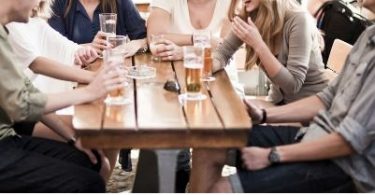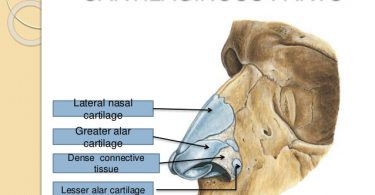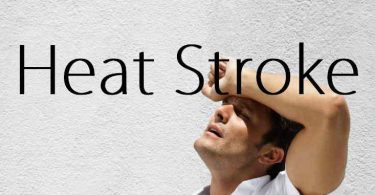
ABSTRACT
With the development of mankind, various diseases have simultaneously developed in the form of epidemics, pandemics, etc., and one such pandemic is the severe acute respiratory syndrome coronavirus 2, which has gripped the whole world since its first report in 2019 in Wuhan. China. This pandemic has not only affected people physically but also mentally. Various treatments and vaccines have been introduced into the traditional medical system to stop this devastation. Steps like isolation, quarantine, and spreading false information on social media have created restlessness, fear, anxiety and other similar mental symptoms in people. Since ancient times, homoeopathy has been proven effective in treating pandemics like cholera etc. Here, individualized homoeopathic medicine treats not only physical ailments but the whole person after a thorough case study and individualization.
KEYWORDS
COVID-19, mental health, homoeopathy
Introduction
The first case of COVID-19 was reported in Wuhan, China in late 2019. It has been established that the Middle East respiratory syndrome coronavirus (MERS CoV), which is thought to have arisen from snakes, bats, and pangolins in the Wuhan wet markets, is related to the COVID-19 virus. The World Health Organization (WHO) proclaimed COVID-19 as the name of this new disease on February 11, 2020. The virus that was identified was known as severe acute respiratory syndrome coronavirus 2 (SARS CoV 2). The outbreak of coronavirus disease in 2019 (COVID-19) was deemed a public health emergency of international concern by the WHO Director-General on January 30, 2020.
- Statistical data-
Globally, as of 6:21pm CET, 7 March 2023, there have been 75,94,08,703 confirmed cases of COVID-19, including 68,66,434 deaths, reported to WHO. As of 6 March 2023, a total of 13,22,91,66,046 vaccine doses have been administered. In India, from 3 January 2020 to 6:21pm CET, 7 March 2023, there have been 4,46,88,367 confirmed cases of COVID-19 with 5,30,775 deaths, reported to WHO. As of 30 January 2023, a total of 2,20,51,13,973 vaccine doses have been administered. - The Coronavirus disease 2019 (COVID-19) pandemic, a significant virus outbreak in the twenty-first century, has caused unprecedented risks to mental health worldwide. The psychological responses of the public during an infectious disease outbreak have a significant impact on the disease’s propagation as well as the incidence of emotional distress and social
disorder both during and after the outbreak. Despite this, adequate resources are frequently lacking to control or lessen the negative consequences of pandemics on mental health and well-being. While it may be understandable in the early stages of an outbreak when health services concentrate on testing, halting the spread of the disease, and crucial patient care, psychological and behavioural needs should never be neglected.
All major epidemic outbreaks have adverse effects on both individuals and society in general. When the environment changes, people tend to feel uncomfortable and apprehensive. Human responses to perceived threats are different and individual, and fear is known (centuries ago and in response to previous viral epidemics such as the plague) but a generalized response to infectious epidemics.
Governmental measures like lockdowns, quarantines, isolation, and social segregation to contain COVID-19 have had an impact on many areas of life, including the economy, industries, global market, agriculture, human health, healthcare, etc., along with a person’s mental health. It has been discovered that social isolation is the main means to slow the disease’s rapid spread. But such separation causes a lot of mental strain. COVID-19 affected everyone, including children, students, the general public, healthcare personnel, school and college students, the elderly, and so on. It is speculated that new measures such as isolation and quarantine have affected people’s normal activities, routines and livelihoods, which may increase loneliness, anxiety, depression, insomnia, harmful use of alcohol and drugs, and self-harm or suicidal behaviour 3 . The global lockdown has increased domestic violence against women and children. The closure of liquor shops has also led to withdrawal symptoms and suicides by alcoholics, which have been reported in states such as Kerala, India. - 4. According to a study, neurotic disorders such as generalized anxiety disorder and obsessive-compulsive disorde (OCD) have increased in a large population due to COVID-19. Since many people do not know when and how often to wash their hands, focusing on continuous hand washing (20 seconds) can have a negative impact on a large population internationally.
- Besides this mood-related and emotional outbursts especially panic, fear, avoidance and fear of meeting other people, fear of death(Thanatophobia), fear of getting isolated, stigmatization, and fear of even not getting essential items, food, etc., may have psychological manifestation.
- Diagnostic Criteria of Mental Health Impacts of Coronavirus Disease 2019 . The effects of COVID-19 on mental health are not negligible. It can range from mild anxiety to fatal suicide. The mental health effects of COVID-19 can be classified under the following diagnostic in accordance with the ICD-10 categorization of mental and behavioural disorders:
- F43 reaction to severe stress and adjustment disorder
- F43.0: Acute stress reaction
- F43.1: PTSD
- F43.2: adjustment disorders
- 20: Brief depressive reactions
- 21: Prolonged depressive reaction
- 22: Mixed anxiety and depressive reaction
- 28: With other specified predominant symptoms.
- F43.8: other reactions to severe stress
- F43.9: Reaction to severe stress, unspecified
Homoeopathic management
Even before the development of modern sanitation, vaccinations, and antibiotics, homoeopathy played a vital role in the control, management, and prevention of contagious epidemic diseases throughout history. The psychological responses of the public during any disease outbreak have a significant impact on the disease’s propagation as well as the occurrence of emotional distress and social disorder both during and after the outbreak.
Dr. Hahnemann has felt time and again a need to talk about emotional or mental diseases and has mentioned it in aphorisms 210 to 230 with footnotes in the Organon of Medicine fifth edition. He says that they are no distinct class by themselves, since every disease always present mental symptom, more or less in number. As one sided diseases they show few symptoms, are psoric in nature and difficult to cure. In aphorism 230 master Hahnemann says that after case taking constitutes the principal symptom of the patient, an indicated antipsoric remedy is given to a patient that helps in treating such mental and emotional diseases.
The vast superiority of the homoeopathic system over all other conceivable methods is best displayed in the treatment of mental and emotional diseases of long standing caused by physical maladies if the antipsoric remedy is appropriately chosen.
6. For treatment, homoeopathy combines both the physical and mental domains of an individual. A thorough case-taking is done which includes not only physical complaints of patients prevalent in COVID-19 but also emotional and mental complaints like stress, depression, anxiety, fear etc. Here, mental symptoms are given foremost importance as noticed by the changes in the state of mind and disposition.
7. According to homoeopaths, traditional medicine conceals symptoms without treating the underlying ailment since it treats
symptoms as “causes” rather than “effects.”
Acute stress disorder, exhaustion, detachment, anxiety, depression, irritability, insomnia, poor concentration, deterioration of work performance, alcohol use, avoidance behaviour, and symptoms related to posttraumatic stress disorder were among the mental health conditions that Brooks et al. discovered in the healthcare workers who worked under quarantine. These conditions persisted even after the 3 years of the quarantine period.
8. Using homoeopathic Materia medica and Repertories:
Some important homoeopathic medicines that showed a great role in the management of post-COVID-19 symptoms are 8 Arsenicum album- for fatigue, anxiety issues
Ignatia amara- for depression
Ipecacuanha- for nausea and abdominal distension
Phosphoricum acidum-For Fatigue and Brain stupor
But one must note that there are no specifics in homoeopathy. Each case has to be properly taken, studied and repertorised if needed to come up with the indicated remedy for that case.
This distinguishing feature of individualisation makes homoeopathy unique from other systems of medicine.
Some prominent emotional and mental symptoms prevalent during covid and its impact can also be looked at in Complete Dynamics 9 like
Mind; horrible things, sad stories affect profoundly, agg.; mental and emotional
consequences
MIND-Fear, panic attacks, overpowering -Cann-i
MIND-Fear, of people, anthropophobia – Acon, Anac, Aur, Cic, Con
MIND-Anticipation, physician before going to – Gels, Phos, Tub
Some rubrics with remedies were looked at in Synthesis repertory 10
MIND – DEATH – presentiment of – calmly thinks of death: (2) bell-p-sp. zinc.
MIND – DEATH – presentiment of – soon and that she cannot be helped; believes that
she will die: (1) Agn
MIND – FEAR – hospital; going to the: (3) arg-n. calc. kali-s.
MIND – FEAR – public places
MIND – FEAR – lung disease; of (4) anh. Aral. arg-n. podo
Few 1 st -grade medicines along with the rubrics from Kent’s repertory 11 that can be used in
such cases are:
HOME-SICKNESS→ Caps., Carb-an. Ph-ac.
SUICIDAL, disposition→ Aur., Aur-m., Nat-s
GRIEF→ Aur., Caust., Ign., Nat-m., Puls.
FEAR→ Acon., Arg-n., Aur., Bell., Bor., Calc., Calc-p., Carb-s., Cic., Dig., Graph.,
Ign., Kali-ar., Lyc., Lyss., Nat-c., Phos., Plat., Psor., Sep., Stram
AUXILIARY MEASURES: Besides giving the individually chosen medicine, homoeopathy offers advice on diet, exercise, stress reduction, and social and environmental factors. It also offers counselling to help the patient in coping with the ongoing situation.
CONCLUSION:
Mental health should not be regarded as a taboo subject, and it should be openly discussed with friends and family. When seeking assistance or contacting a doctor, one should not be hesitant. Homoeopathy gained popularity in the past during epidemics of cholera, swine flu, and other diseases, and it has proven to be effective again in COVID-19 because it considers
every aspect of the patient’s life, providing fast relief with minimal morbidity. Homoeopathy can provide patients with quick and gentle relief using drugs and psychotherapy. To evaluate the efficacy of homoeopathic preventative drugs, more clinical and molecular research is required.
Conflict of Interest: The author declares that they have no conflict of interest
REFERENCES
1.https://www.who.int/newsroom/detail/30012020statementonthesecondmeetingoftheinternat
ionalhealthregulations-(2005)- emergencycommitteeregarding-theoutbreak-of-novel-coronavirus (2019ncov)
- India: WHO Coronavirus Disease (COVID-19) Dashboard with Vaccination Data | WHO
Coronavirus (COVID-19) Dashboard with Vaccination Data - (N.d.). Who.int. Retrieved March 12, 2023, from http://www.euro.who.int/en/health-
topics/health-emergencies/cor-onavirus-COVID-19/novel-coronavirus-2019-ncov-technical-
guidance/coronavirus-disease-COVID-19-outbreak-technical-guidance-europe/mental-health-
and-covid- - Ghosh, A., Choudhury, S., Basu, A., Mahintamani, T., Sharma, K., Pillai, R. R., Basu, D.,
& Mattoo, S. K. (2020). Extended lockdown and India’s alcohol policy: a qualitative analysis
of newspaper articles. The International Journal on Drug Policy, 85(102940), 102940.
https://doi.org/10.1016/j.drugpo.2020.102940 - Moorthi SK, Radhika P, Muraleedharan KC. Psychological implications during the
outbreak of COVID-19 and its homoeopathic management. Indian J Res Homoeopathy 2020;
14:136-42 - Hahnemann S. Organon of Medicine, aphorisms 213, 210-230, Translated by RE dudgeon,
Modern Homoeopathic Publication 5 th edition. - Brooks SK, Webster RK, Smith LE, Woodland L, Wessely S, Neil Greenberg FM, et al.
The psychological impact of quarantine and how to reduce it: Rapid review of the evidence.
Lancet 2020; 6736:912-20. Available from: https://ssrn.com/abstract=3532534 - Dr. Archana Shashikant Meshram. Impact of COVID-19 on mental health and
homoeopathy. Pharma Innovation 2023;12(2):359-362. - Roger Von Zanvoort Complete Repertory (CR). Computer version MacRepertory
Millennium. 2000 - Schroyens DF. SYNTHESIS. 9.1. Schroyens DF, editor. B. JAIN PUBLISHERS(P)
LTD; 2006. - KentJT. Repertory of the homoeopathic materia medica. New Delhi: B. Jain.2016





